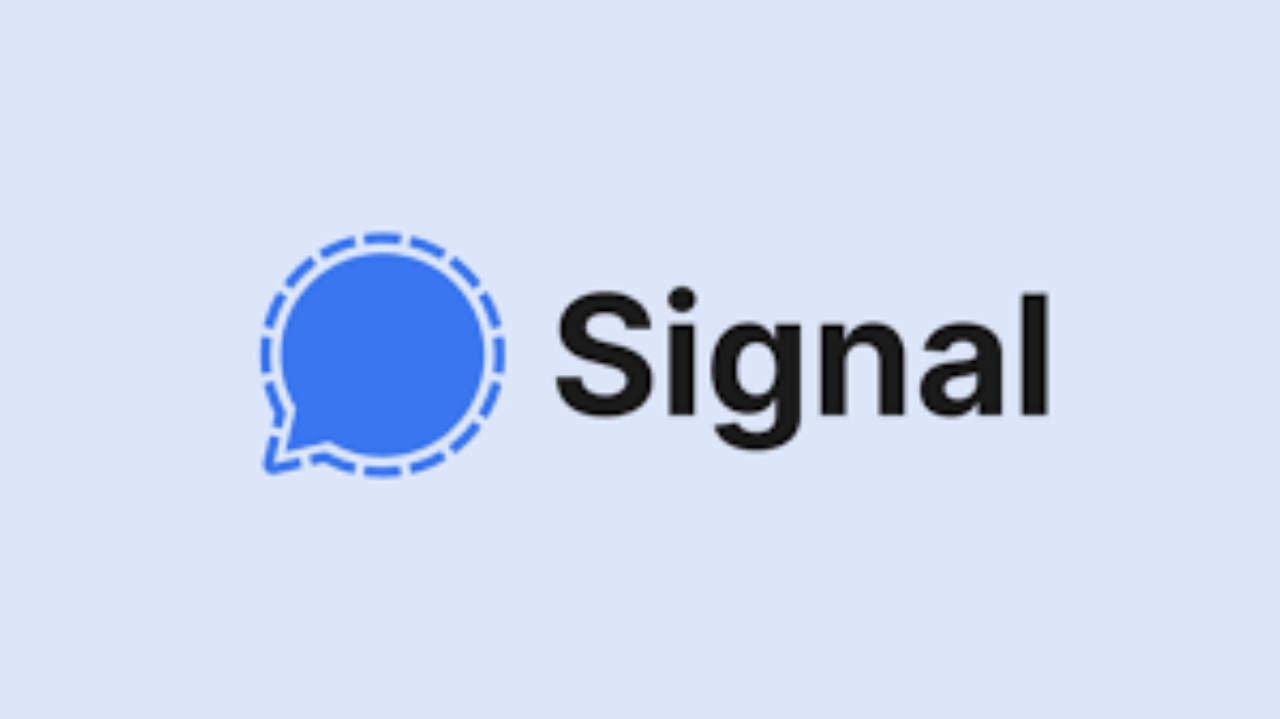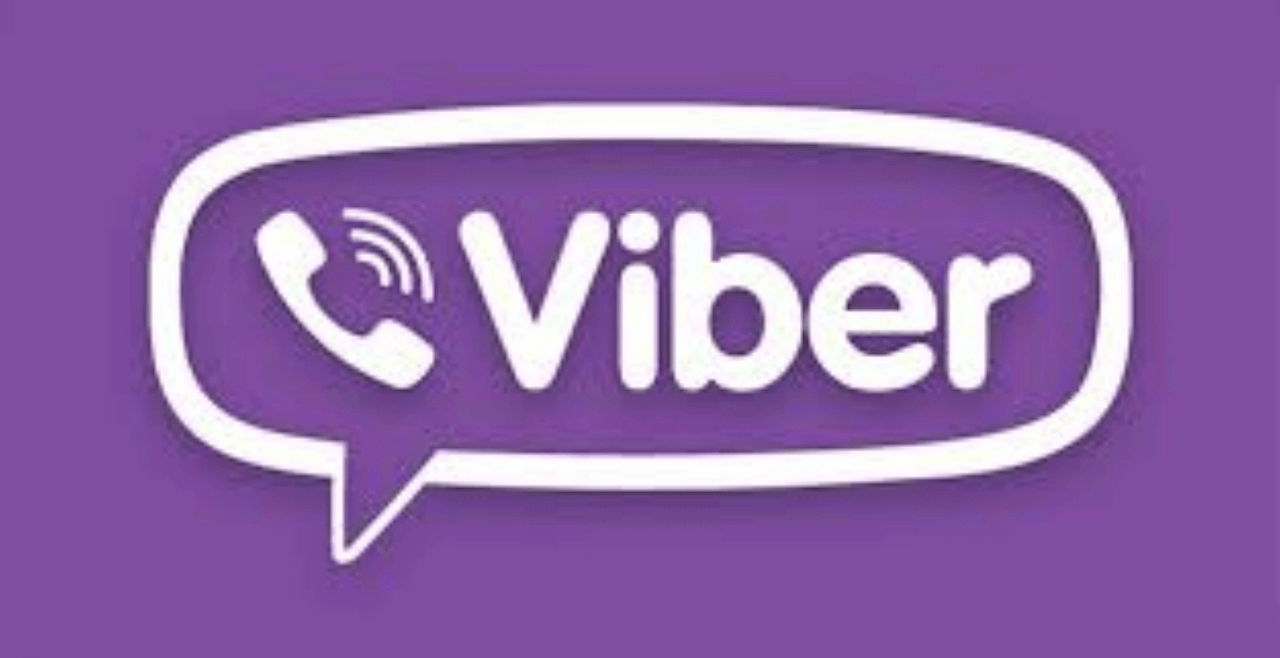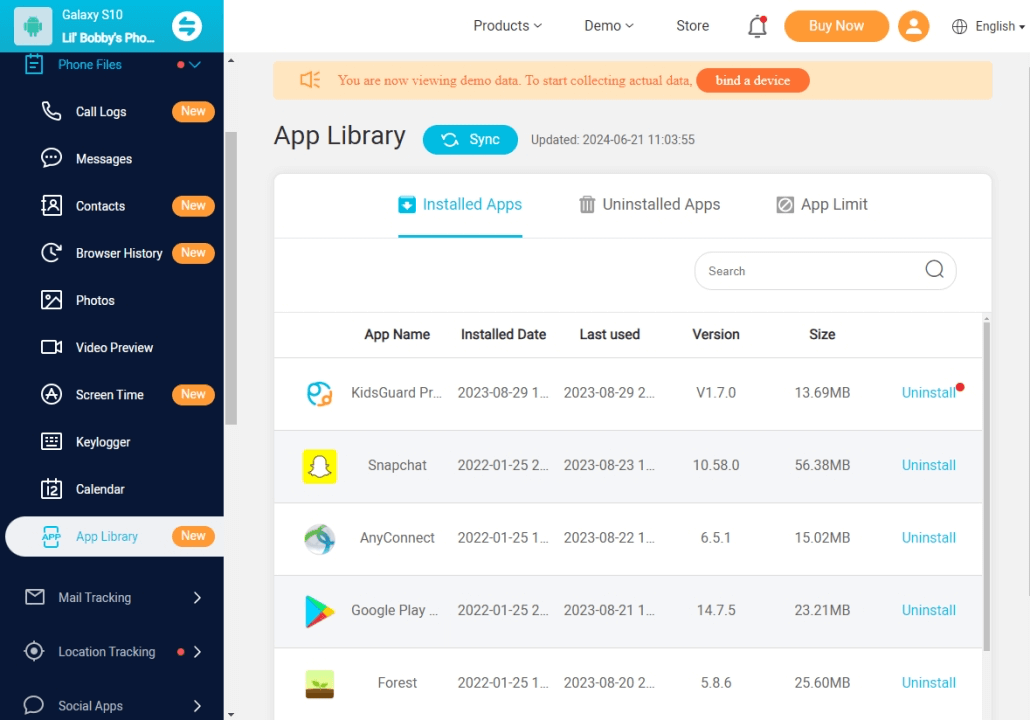ClevGuard Support: Monitor Devices with Others' Permission.
In today's digital landscape, the proliferation of secret texting apps has given rise to a new set of challenges for parents aiming to safeguard their children from the potential dangers of undisclosed online communication. While these applications offer a high degree of privacy and security, they also open doors to hidden conversations that could be misused without proper oversight.
This article will shed light on 7 hidden apps for texting that have become increasingly popular among the younger generation. By familiarizing yourself with these secret messaging apps, you'll gain valuable insights into how to monitor your child’s digital footprint more effectively with KidsGuard Pro.
7 Common Hidden Apps for Texting in 2024
Signal Private Messenger
Signal Private Messenger is renowned for its strong emphasis on privacy and security. This app uses end-to-end encryption to ensure that all communications, including texts, calls, and media, are secured from interception. Signal's protocol is open-source, allowing experts to verify its security and transparency.

Key Features
- End-to-end encryption: All messages and calls are encrypted, ensuring that only the sender and receiver can access the content.
- Self-destructing messages: Users can set timers for messages to be deleted automatically, enhancing privacy.
- Open source: The code is publicly available for scrutiny, promoting a high level of trust and security.
- Group chats: Signal allows users to create encrypted groups for private discussions.
-
High-level security: With its encryption technology, Signal provides one of the highest security levels available in messaging apps.
-
Privacy focused: No ads or trackers, ensuring user data isn't monetized.
-
User-friendly: Simple and clean interface, making it easy for all ages to use.
Pros
-
Limited User Base: Less popular compared to other messaging apps, which might limit its usefulness in wide social circles.
-
Requires phone number: Registration requires a phone number, which could be a privacy concern for some users.
Cons
While Signal Private Messenger is designed with privacy in mind, it can be a double-edged sword when it comes to parental monitoring. The very features that make it secure also make it challenging for parents to oversee their children's communications. The app's encryption means that parents cannot easily access the content of the messages, potentially preventing them from intercepting harmful or inappropriate communications.
Additionally, the self-destructing messages feature can be misused by kids to hide conversations from parental supervision. Understanding these aspects is crucial for you as a parent to discuss responsible use of such apps with your children and to establish guidelines that balance safety with privacy.
Telegram
Telegram Messenger, a cloud-based communication app, allows seamless synchronization across all your devices, making it a popular choice among tech-savvy teens. It enables users to send texts, pictures, videos, and files of any type (doc, zip, mp3, etc.) free of charge. With its user-friendly interface, Telegram provides functionalities similar to SMS and email combined, accommodating both personal and business messaging needs.

Key Features
- Secret chats and end-to-end encryption: Offers an optional end-to-end encryption setting for personal chats, ensuring that only you and the recipient can read the messages.
- Self-destructing messages: Users can set timers for messages to be deleted automatically, enhancing privacy.
- Self-destructing messages: Messages can be set to self-destruct after a certain period, leaving no trace.
- Large group chats: Users can create groups with up to 200,000 members, ideal for large communities or organizations.
- Bots and channels: Support automated bots and channels for broadcasting messages to an unlimited audience, enhancing interaction and engagement.
- Cross-platform availability: Available on various platforms, including iOS, Android, PC, and web browsers, which allows for syncing across multiple devices.
-
Privacy and Security: Strong focus on security with features like secret chats and self-destructing messages.
-
Versatility: Supports a wide range of multimedia and file-sharing options, catering to diverse user needs.
-
User engagement: Large group capacities and channel broadcasting make it suitable for large-scale communications.
Pros
-
Complexity for new users: The array of features might overwhelm new users.
-
Potential for misuse: The strong privacy features, while beneficial, also make it a potential tool for inappropriate activities among teens.
-
Lack of parental controls: The app does not offer robust parental control options, making it difficult to monitor and regulate your child's activity.
Cons
The very features that make Telegram appealing also pose significant risks for younger users. The ability to create secret chats and send self-destructing messages can encourage secretive behavior and communication that parents cannot monitor.
Furthermore, the "People Nearby" feature could expose children to potential dangers from strangers, making it a risky option for unsupervised use. The platform's open nature and lack of effective parental controls can make it challenging for you to ensure your child's safety and prevent exposure to harmful content.
Viber
Viber is a versatile communication app that allows users to send free text messages, photos, video messages, and make phone calls to other Viber users worldwide. It is available on multiple platforms including Android, iOS, and some desktop computers. Viber accounts can be set up using Facebook or a cell phone number, and the app automatically syncs with your contact list to identify other Viber users.

Key Features
- Free international communication: Users can call or message other Viber users anywhere in the world without incurring charges, using just Wi-Fi or 3G.
- Group messages: Supports group messaging with up to 100 participants, and the ability to make calls to non-Viber users with purchased credits.
- Stickers and doodles: Offers a vast array of stickers, some of which are free. Users can also draw messages or doodle on photo messages.
- Public and private chats: Allows users to join public group chats or create private group chats with friends and family.
- Cross-platform syncing: Seamlessly syncs across all devices, ensuring you can access your messages and calls from any connected device.
-
No cost for basic services: Messaging, voice and video calls to other Viber users are free. Creative communication: The app's stickers and doodle features make chatting more fun and expressive.
-
Wide accessibility: Available on various devices and platforms, enhancing its usability.
Pros
-
In-app purchases: Some features, like certain stickers and the ability to call non-Viber users, require purchasing credits.
-
Exposure to strangers: Public group chats can expose users, particularly younger ones, to strangers, which might be a concern for parents.
-
Content concerns: Not all stickers are child-appropriate, and the public chat feature may contain adult content.
Cons
Viber's functionality as a robust messaging and calling platform can also pose risks for young users. The ability to participate in public chats and access a wide range of content, including some that may not be suitable for children, requires vigilant parental oversight.
The app's easy connectivity with strangers through group chats can lead to potential risks such as cyberbullying or unwanted contact.
Threema
Threema stands out as a secure messenger app designed to prioritize user privacy. Launched in 2012, its main goal was to offer an alternative to WhatsApp with enhanced security and privacy features. Adhering to the "Privacy by Design" principle, Threema generates only the data necessary for its operation and allows usage without any personal information.

This Swiss-based app is now open source, providing complete transparency and allowing anyone to verify its security measures.
Key Features
- Open source and transparent: Threema's source code is publicly accessible, ensuring that any claims about its security can be independently verified.
- End-to-end encryption: All forms of communication within the app, including texts, calls, and group chats, are secured with end-to-end encryption.
- Minimal data usage: True to its privacy-focused design, Threema collects minimal metadata and user data.
- No personal information required: Users can enjoy full anonymity, with no obligation to provide personal details like a phone number or email address.
- Multi-device functionality: Threema supports use across multiple devices, including phones and tablets, without compromising security.
- Threema ID: Unique to each user, this ID is used instead of a phone number, enhancing anonymity and privacy.
-
High security and privacy: With comprehensive encryption and minimal data retention, Threema offers a high level of security and privacy.
-
User anonymity: Users can communicate without revealing any personal information, making it ideal for those prioritizing privacy.
-
Versatility: Supports text, voice, video, and group communications, all encrypted.
Pros
-
Cost: Unlike many messaging apps, Threema is not free. The costs associated with maintaining its infrastructure are covered by user fees, rather than by selling data.
-
Complexity for some users: The array of privacy features and settings might overwhelm users new to privacy-focused apps.
Cons
Despite its strong privacy features, Threema presents challenges for parental monitoring. Its encryption and anonymity can make it difficult for you to oversee who your children are communicating with and what they are sharing. The ability to use the app without any personal information and the minimal data retention can potentially be misused by tech-savvy kids to hide their activities from parents and guardians.
Wickr Me
Wickr Me stands out as a secure messaging app renowned for its strong emphasis on privacy and security. Launched in 2012, it provides a platform where users can send text messages, pictures, videos, audio files, and documents with a high level of encryption. Its user-friendly interface is designed to ensure that all communications are protected from unauthorized access, making it a popular choice for those who prioritize confidentiality in their digital interactions.

Key Features
- End-to-end encryption: Wickr Me ensures that all messages are encrypted from the moment they are sent until they are decrypted by the recipient, safeguarding the contents against interception.
- Ephemeral messaging: Messages in Wickr Me come with an expiration timer, allowing them to self-destruct after a set period, which enhances privacy.
- Secure file sharing: Users can share files up to 10MB in size, which are encrypted during transmission and storage, ensuring data security.
- User anonymity: The app allows users to register without providing personal details such as an email address or phone number, supporting complete anonymity.
- Secure shredder: Wickr Me employs technology that overwrites deleted files with random data, making it nearly impossible to recover them.
-
Robust privacy features: With features like end-to-end encryption and ephemeral messaging, Wickr Me provides comprehensive security measures that protect user privacy.
-
Anonymity and privacy: The ability to use the service without personal identifiers is a significant advantage for users concerned about privacy.
-
Secure communications: The app's encryption protocols are designed to prevent unauthorized access to communications and shared files.
Pros
-
Limited user base: Compared to more mainstream apps, Wickr Me's smaller user base might limit its functionality in wider social circles.
Cons
While Wickr Me's robust security features are designed to protect user communications, the anonymity provided by the app can make it challenging to verify the identities of the individuals your child may be interacting with, increasing the risk of exposure to inappropriate content or online predators. As a parent, it's crucial to discuss these risks with your children and establish clear guidelines and monitoring practices to ensure their safety while using such apps.
CoverMe
CoverMe is a private communications app that emphasizes security and privacy, making it an attractive option for those looking to keep their conversations confidential. This app allows users to hide photos, videos, text messages, and other files in a hidden album protected by a unique passcode. It also features an embedded messaging platform for communicating with other CoverMe users and personal contacts.

Key Features
- Private phone number: Users can obtain disposable phone numbers for different aspects of their lives, ensuring their real phone number remains private.
- Disappearing messages: Messages can be programmed to self-destruct after being read, with a delay of 10 seconds, ensuring no traces are left.
- Secure vault: A safe place to lock away private photos, videos, passwords, notes, and documents with options for cloud backup.
- Shake to hide: A unique feature where users can shake their device to quickly switch the screen to a photo gallery to prevent shoulder surfing.
-
Privacy tools: Offers robust features like end-to-end encryption, disappearing messages, and a secure vault to ensure user privacy.
-
Versatility: Provides multiple phone lines and customizable privacy settings to balance work and personal life.
-
User-friendly interface: Despite its advanced features, CoverMe offers a user-friendly interface that is accessible to all users.
Pros
-
Potential for misuse: The very features that make CoverMe a robust privacy tool can also be misused by younger users to hide inappropriate content or communications from parents.
-
Cost: Some premium features require payment, which might be a consideration for budget-conscious users.
Cons
CoverMe's extensive privacy features, while ideal for adult users, pose significant challenges for parental monitoring. The app's ability to create completely private communications and store files secretly can enable children to engage in risky behaviors without oversight. The disappearing messages feature and the secure vault can be particularly problematic, as they allow kids to hide conversations and content from their parents.
WhatsApp, a widely used social media messaging application, allows users to communicate through text, voice, and video calls using their mobile devices. It operates on a simple mechanism that utilizes standard internet data, which makes it free for basic services.

Owned by Meta, WhatsApp boasts a staggering user base of over 2 billion people globally, making it the most popular instant messaging app worldwide. Despite its extensive reach and user-friendly features, WhatsApp poses significant risks and safety concerns for kids and teens, making it crucial for parents to monitor and guide their usage.
Key Features
- Group chats: Users can create group chats with up to 256 members, facilitating communication among large groups.
- Voice and video calls: Offers free voice and video calls over Wi-Fi, reducing the need for traditional phone service and avoiding international calling charges.
- Disappearing messages This feature allows messages to disappear after a set duration, promoting more mindful communication.
- Share live location: With permission, users can share their live location on WhatsApp with others, providing reassurance about their whereabouts.
-
Cost-effective communication: Enables free international messages and calls through an internet connection.
-
Multimedia sharing: Users can exchange texts, images, videos, and files up to 100 MB, enhancing the richness of communication.
-
User privacy: Features like disappearing messages and view-once media offer users control over their message privacy.
Pros
-
Privacy risks: Limited privacy controls expose users to potential cyberbullying and unwanted contact. Profile pictures and statuses are visible to all contacts, which could lead to privacy breaches.
-
Cyberbullying and scams: The platform can be used for cyberbullying or to spread scams and fake news, especially in large group chats.
-
Addictive nature: The engaging interface and instant notifications can lead to excessive use, affecting teens' responsibilities and sleep patterns.
-
Inappropriate content: With minimal content restrictions, there is a risk of exposure to inappropriate material shared within chats and groups.
Cons
Understanding these features and potential risks is essential for you as a parent. Discussing the benefits and drawbacks of WhatsApp with your kids can help them navigate the app safely. Consider setting up a family group chat to maintain open lines of communication and monitor their interactions. Additionally, teaching your kids to use privacy settings effectively, such as two-step verification and blocking unknown contacts, can enhance their security on the platform.
How to Find Hidden Messaging Apps
KidsGuard Pro: Best phone monitoring app for parental control
If you are scouting for a comprehensive parenting app for your kids’ online safety, then KidsGuard Pro proves to be a reliable choice. It enables you to check someone’s app usage, conversation history, and screen time. Here are some key features that makes it a preferred choice in monitoring kids’ cyber-security:

App library monitoring: Provides a comprehensive list of all apps installed and uninstalled on a device. Display the accurate dates, last active time, and app version for the apps;
Keyword alert: Monitor typed or searched words and phrases on a device and sends alerts when certain keywords are detected;
Instant messenger tracking: Monitor and record conversations and activities on messaging apps like WhatsApp, Facebook Messenger, Snapchat, Telegram, and others;
Screenshot capture: Takes screenshots of the device's screen to provide a visual log of the activities performed;
App usage limit: Enable parents to control the amount of time their children spend on specific applications and temporarily block access to certain apps;
Browser history monitoring: Track and record all websites visited by the user, including visited URLs, frequency, page titles, and last visit.
The listed features are only a small part of this phone monitoring app. Want to explore more? Hit the free demo to know more this tool and find if there are any secret texting apps installed on your cared one’s phone right away.
Conclusion
Throughout this article, we have explored 7 hidden texting apps that have become increasingly popular among younger users. These apps, from Signal Private Messenger to WhatsApp, offer a blend of privacy, security, and convenience, but also present substantial challenges for parental supervision.
In order to know if hidden apps for texting are installed on your kids’ devices, you need help from third-party apps like KidsGuard Pro. It can provide information of each installed and uninstalled apps on the target phone. Click the free demo to unveil what’s hidden.





